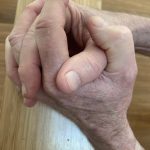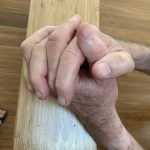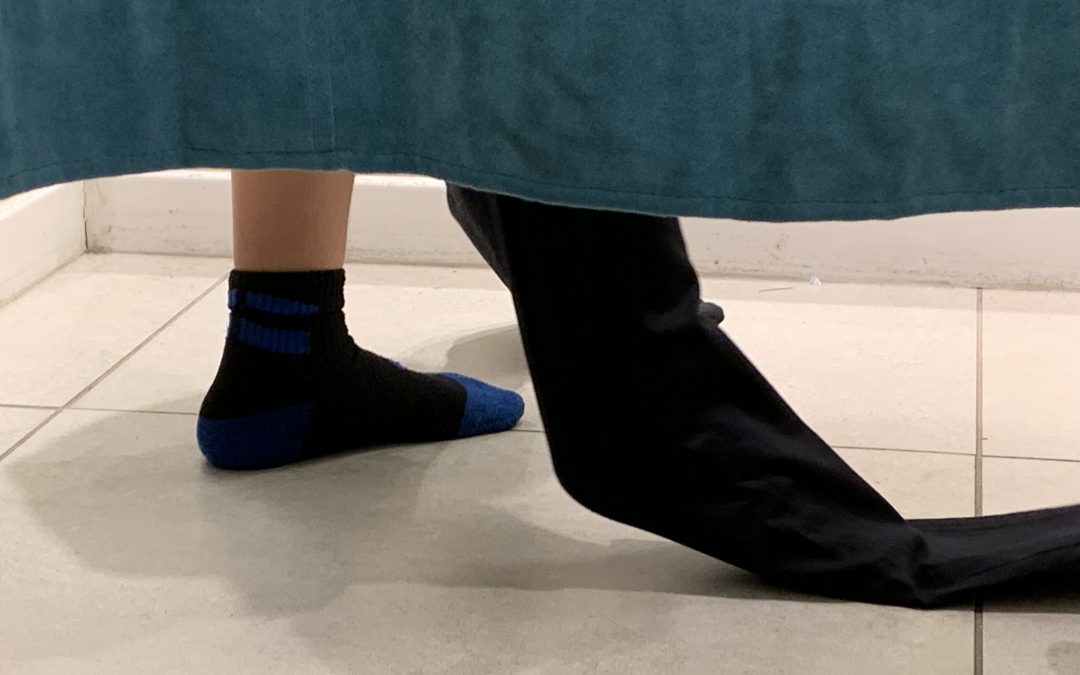My Grandson Trying On New Pants
Which Leg Do You Habitually Step into First?
My podcast and blogs this week explored the sense of familiarity and belonging that the groups we are part of (e.g., social class, family, etc.) provide for us.
It feels comfortable to belong to groups that give me a familiar sense of “we.”
But to do my part to finally end centuries of domination and exclusion will require that I re-draw the lines around my “we,” including in my circle of belonging those I have consciously or unconsciously excluded.
And for a time, this will probably feel uncomfortable and disorienting. But it’s a discomfort I must experience to increase my awareness of the possibility of a bigger, stronger “we.”
A few days ago, I interviewed Dawna Markova for Season 3 of my podcast Becoming Who You Truly Are. A few months from now, you’ll have the privilege of hearing what Dawna has to say, among other things, about loving the life we are living and living a life we can love.
For now, I want to focus on an exercise Dawna described that illustrates the value of feeling the discomfort of the unfamiliar.
First, clasp your hands, interlocking your fingers in a way that feels most familiar and habitual to you. Here’s my beloved clasping his hands in his familiar way (which is the opposite of mine – what does that say about us? We also tie our shoes from the opposite direction. Ed says it’s because I grew up upside-down in Paraguay!).

Now, unclasp them and re-clasp them in a new way. For example, if your right thumb was on top the first time, interlock your fingers so that your left thumb is on top. Here’s Ed clasping his hands in his unfamiliar way.

Try clasping them both ways again and as you do, first think about which way is more comfortable. Second, think about which way leads to greater awareness of your fingers and the spaces between them. Your two answers are likely to be different.
The point of this exercise in light of this week’s topic, is that if I wish for greater and truer awareness of the narrowness and exclusions of my current circle of “we,” I will lean into my discomfort, knowing that (in the words of Calvin Coolidge), “[I] can either be comfortable and stagnate, or stretch [myself ]— become uncomfortable — and grow.”


Mahatma Gandhi told us to “Be the change you wish to see in this world?” It is so much easier and more comfortable to blame others for what do not like in the world around us than to responsibly change ourselves.